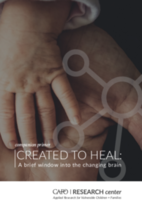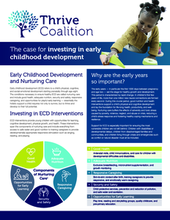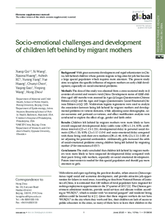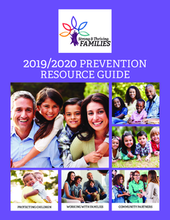Displaying 71 - 80 of 496
This study zeroes in on the issue of left-behind children and draws on data from the China Family Panel Studies surveys to examine the impacts of parental absence on child development in psychological, physical and cognitive domains.
This 'companion primer' from the Christian Alliance for Orphans (CAFO) provides an overview of the ways in which adversity impacts brain development and how the use of appropriate interventions based on relationships can help reshape children's brains, leading to greater wellbeing and better outcomes for kids from hard places.
This study explores the development of abused children in different areas. Likewise, it looks into differences of the level of development in relation to age, gender and type of abuse.
This study examined the long-term effects of the Head Start early childhood program on foster children's developmental outcomes from ages 3–4 to 8–9.
This chapter from 'Addressing Multicultural Needs in School Guidance and Counseling' focuses on the psychological and social issues that orphans and other vulnerable children experience when their parents are no longer alive.
This two-page document from the Thrive Coalition - a community of over 30 organizations and individuals dedicated to addressing U.S. Government support for global early childhood development - makes a case for U.S. investment in global early childhood development.
The present study aims to explore the specific influence of migrant mothers on early child development, especially on social-emotional problems.
This Resource Guide offers support to community service providers as they work with parents, caregivers, and children to prevent child maltreatment and promote social and emotional well-being.
This Module explores how cognitive and social-emotional abilities operate in youth’s daily experience and personal lives and what we can do to help young people develop and strengthen these skills in order to thrive.
The Pathways of Care Longitudinal Study (POCLS) is the first large-scale prospective longitudinal study of children and young people in out-of-home care (OOHC) in Australia.




